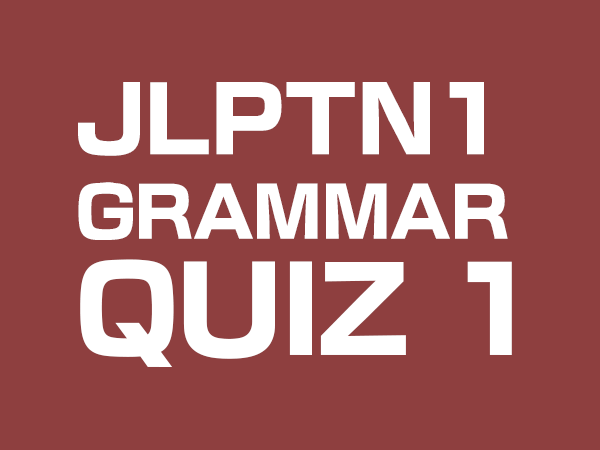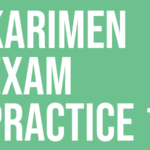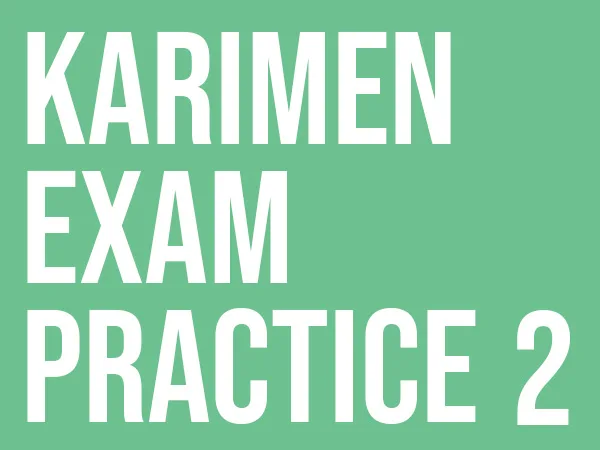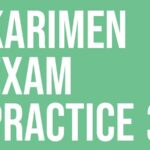日本語能力試験N1の文法パターンを使った選択問題です。この問題に答えるときは、それぞれの文の全体的な意味を理解することが大切です。それぞれの文脈に最も適した選択肢を選んでください。
Results
Congratulations!
Better luck next time!
#1. 彼は、彼女が「______」、決して謝罪しないだろう。彼と彼女の間には、深い信頼関係が築かれていましたが、最近の出来事がその信頼を揺るがしてしまいました。彼は自分の行動に対して反省していますが、彼女が直接会いに来ない限り、謝罪するつもりはありません。彼は彼女と直接話し合うことで、誤解を解き、信頼関係を再構築したいと考えています。しかし、彼女が来ない限り、彼は決して謝罪しないだろうという強い意志を持っています。このような状況は、彼にとって非常に難しい選択を迫るものですが、彼は自分の信念を貫くことを選んでいます。
この文は、「彼は、彼女が来ない限り、決して謝罪しないだろう。」という文です。この文の意味は、「彼女が来ないと、彼は絶対に謝罪しない」ということを表しています。
This sentence says, “He will never apologize unless she comes.” The meaning of this sentence is “If she doesn’t come, he will never apologize.”
Explanation of the Correct Answer
The correct answer is 来ない限り.
Explanation:
- 来ない限り (こないかぎり): This means “unless she comes.” It accurately describes the condition under which the person will not apologize. The sentence indicates that the person will only apologize if the girlfriend comes, and not otherwise. This phrase clearly sets the condition for the apology.
Explanation of the Other Options
- 来ないことは: This means “the fact that she does not come.” It does not set a condition for the apology and does not fit the context of the sentence, which requires a conditional phrase.
- 来なければ: This means “if she does not come.” While it is a conditional phrase, it is not as specific or clear as “来ない限り” in setting the condition for the apology. It does not convey the same sense of finality or strict conditionality.
- 来ないこととて: This is not a correct or meaningful phrase in this context. It does not convey the intended meaning of the condition for the apology.
Therefore, 来ない限り is the correct choice as it accurately describes the condition under which the person will not apologize unless the girlfriend comes.
JLPT N1 Vocabularies and Grammars
- 彼 (かれ): He.
- 彼女 (かのじょ): She, girlfriend.
- 来ない限り (こないかぎり): Unless she comes.
- 決して (けっして): Never.
- 謝罪する (しゃざいする): To apologize.
- だろう: Probably, likely.
- 信頼関係 (しんらいかんけい): Trust relationship.
- 築かれている (きずかれている): To be built.
- 出来事 (できごと): Event, occurrence.
- 揺るがす (ゆるがす): To shake, to disturb.
- 反省する (はんせいする): To reflect, to reconsider.
- 行動 (こうどう): Action.
- 直接 (ちょくせつ): Directly.
- 話し合う (はなしあう): To discuss, to talk over.
- 誤解 (ごかい): Misunderstanding.
- 解く (とく): To resolve, to clear up.
- 再構築する (さいこうちくする): To reconstruct, to rebuild.
- 意志 (いし): Will, determination.
- 難しい選択 (むずかしいせんたく): Difficult choice.
- 迫る (せまる): To force, to compel.
- 信念 (しんねん): Belief, conviction.
- 貫く (つらぬく): To adhere to, to stick to.








